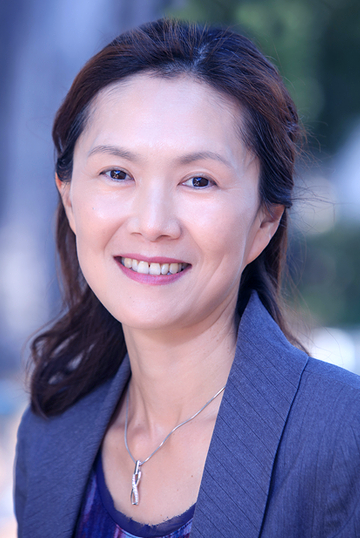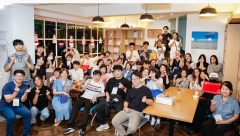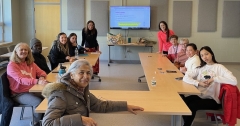Teaching English to North Korean Defectors as a Tool for Conflict Transformation
| by Mark C. Anderson
Two TESOL students completed their capstone practicum teaching at an alternative school in Korea that serves defectors from North Korea where their professor is developing the English curriculum.



